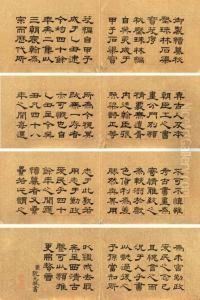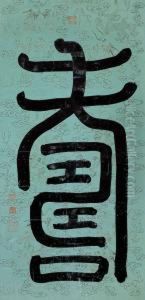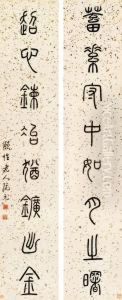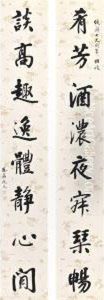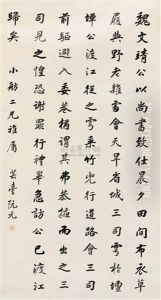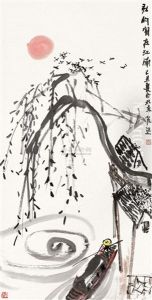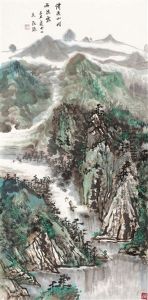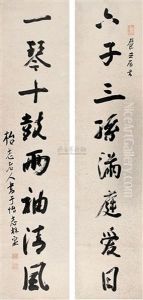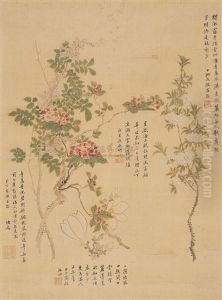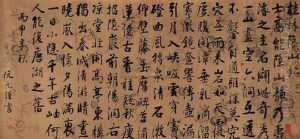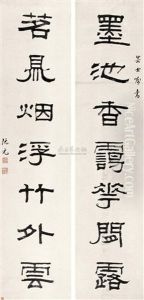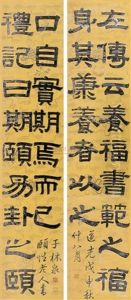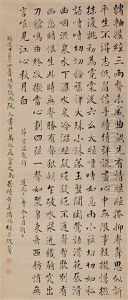Ruan Yuan Paintings
Ruan Yuan was a towering figure in the Qing dynasty's intellectual and academic landscape, known for his contributions as a scholar, official, and patron of the arts and sciences. Born on March 6, 1764, in Ningbo, Zhejiang Province, Ruan was embedded in a period of Chinese history that was marked by significant social, political, and cultural transformations. His life and work spanned the late Qing era, a time when China was grappling with internal challenges and the early pressures of Western imperialism. Despite these tumultuous contexts, Ruan Yuan managed to carve out a legacy that influenced the trajectory of Chinese scholarship and governance.
Ruan Yuan's academic prowess was evident from a young age, and he excelled in the rigorous imperial examinations, eventually attaining the highest degree of Jinshi. This accomplishment paved the way for a distinguished career in the Qing government, where he held various high-ranking positions, including the governorship of Guangdong and Guangxi provinces. His tenure in these roles was marked by efforts to reform administration and to mitigate the effects of natural disasters and piracy, showcasing his commitment to the welfare of the people under his governance.
Beyond his administrative duties, Ruan Yuan's passion for knowledge and scholarship was unparalleled. He is perhaps best remembered for his monumental work in compiling the 'Biographies of Astronomers and Mathematicians' and for editing the 'Complete Library of the Four Treasuries', a massive bibliographic project that sought to preserve and categorize the entirety of Chinese literature up to that point. His dedication to the preservation and promotion of Chinese scholarship earned him a place among the most respected intellectuals of his time.
Ruan Yuan was also a key figure in the revitalization of the Imperial Academy and was instrumental in promoting the study of Western sciences and mathematics in China, bridging the gap between traditional Chinese scholarship and emerging Western ideas. His home became a center for scholarly discussion, attracting intellectuals from across the country who were interested in both traditional Chinese and Western sciences. This blend of interests helped to foster a more holistic approach to scholarship in China, encouraging a fusion of ideas that would shape the intellectual landscape for generations to come.
In recognition of his contributions to Chinese scholarship and governance, Ruan Yuan was posthumously honored with titles by the Qing government. His legacy, however, extends beyond these official honors. It is found in the enduring impact of his works and the scholarly tradition he fostered, which continued to influence Chinese intellectual and cultural life well beyond the Qing dynasty's end. Ruan Yuan died on September 27, 1849, but his spirit of inquiry and dedication to the advancement of knowledge continue to inspire scholars around the world.

